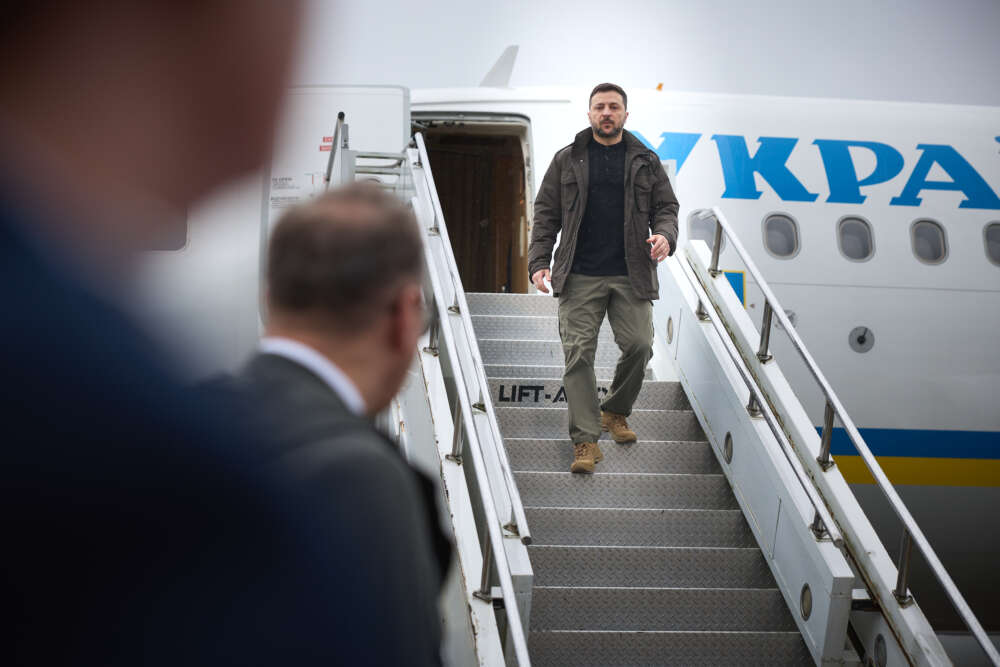Embracing Hard Power
Germany has a responsibility to shape the outcome of the war against Ukraine
“The more things change, the more they stay the same,” the popular saying goes. German policy toward Ukraine following Russia’s full-scale invasion is a case in point. Berlin is trying to walk a fine line, ensuring that Kyiv does not lose while Moscow does not win, and has spent nearly €16 billion in direct bilateral financial, military, and humanitarian aid pursuing these objectives. As the largest EU member state, Germany also pays the lion’s share of the bloc’s support to Ukraine. In total, Berlin has made an investment so large that it would signify a German failure, too, should Ukraine lose the war. At the same time, the assistance is insufficient to prevent Moscow from winning, especially if the United States substantially reduces or ends its military support. Germany is simultaneously in it too deep but not deep enough.
Much has indeed changed in and for Germany since February 2022. Chancellor Olaf Scholz’s Zeitenwende, the “watershed moment” of the country’s foreign and security policy, mobilized an extra €100 billion for its military. Berlin has become the second-largest donor to Kyiv (in absolute terms; relative to GDP, Germany trails other European countries), has welcomed about 1 million Ukrainian refugees, and has stepped up its role in NATO by deploying a brigade to Lithuania. Germany has also released its first national security strategy, which names Russia as the greatest threat to European prosperity, peace, and security.
Yet much has also stayed the same over the last three years. A substantive overhaul of Germany’s view of its global role is only gradually taking shape, too slowly given the pace of the war in Ukraine. In addition, the chronic disconnect between the foreign policy challenges Germany faces and its reactions to them were again apparent when, on the day after Donald Trump’s reelection, the government in Berlin collapsed rather than decisively boosting aid to Ukraine. Germany still believes that the United States must steer any decisive action there. It continues to follow Washington’s lead on supporting Kyiv, seeing itself as a security actor constrained but protected by the United States. And even though Germany named Russia as the greatest threat in its national security strategy, debate on a new policy toward Moscow remains nonexistent, as does a reckoning with past strategic mistakes.
With Trump back in the White House, the speed at which Germany acts, which Scholz likes to call the “Deutschlandtempo”, must increase. The new government in Berlin, once in power, faces especially tough choices on Ukraine, and officials will need to act quickly. Will they muster the courage, money, and equipment to prevent Kyiv from losing more ground to Russia? Or will Germany await the results of an agreement between Trump and Russian President Vladimir Putin, one in which Berlin may or may not have a say?
Crucially, the next government will also be unable to avoid clarifying public spending priorities, whether the debt brake is kept, reformed, or abolished. If resources are to continue flowing to defense and Ukraine, cutbacks elsewhere will be necessary. A majority of Germans has long supported aid to Ukraine, but political parties promising peace at all costs have gained ground since the full-scale invasion. Many Germans, struggling to understand the meaning of “Zeitenwende”, simply equate the term with “crisis”.
The implications of the war for Germany, therefore, must be communicated even more clearly. If Ukraine loses, Germans will not return to the status quo ante with a revised European map. They will have lost their best defense against a country intent on ending German and European prosperity. Friction with Russia will continue regardless of whether Germans want it or not. And, in an international context in which, for many outside Europe, the war in Ukraine is just one more armed conflict that could have been avoided, only Europe can stand up for itself.
The incoming government in Berlin should consequently:
- be honest about the prospect of a Trump-Putin peace deal on Ukraine (slim), the Russian threat (real), and the cost of protecting Germany (and Europe) from that threat (high)
- implement a long-term plan for securing Ukraine, including a steady, sustainable supply of military equipment based on an understanding that Europe, including Germany, will maintain support for Kyiv even beyond any potential peace deal or ceasefire
- formulate a new Russia policy based on lessons learned, including medium-term provisions to counter the current and likely future threat that Russia poses, and options for rapid, decisive action to respond to sudden changes in Moscow for the worse or, surprisingly, for the better
This commentary was originally published on February 13, 2025 by the German Marshall Fund of the United States (GMF). It is one of the entries in the GMF’s publication Germany’s Role in a Changing Global Order. This work is also supported by the Alfred Landecker Foundation.








